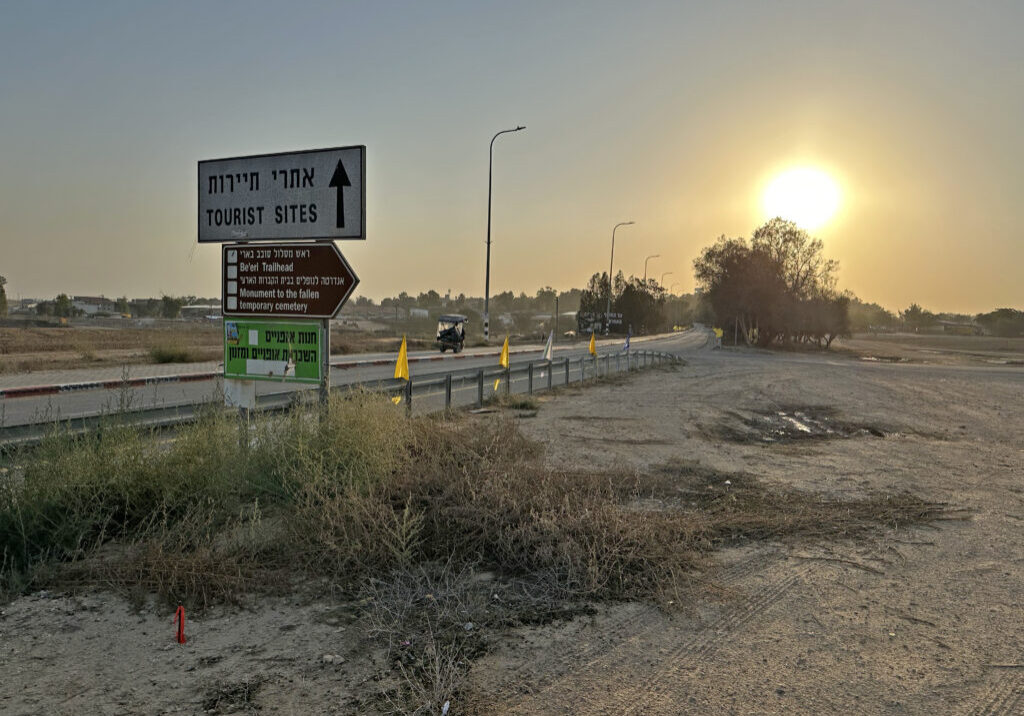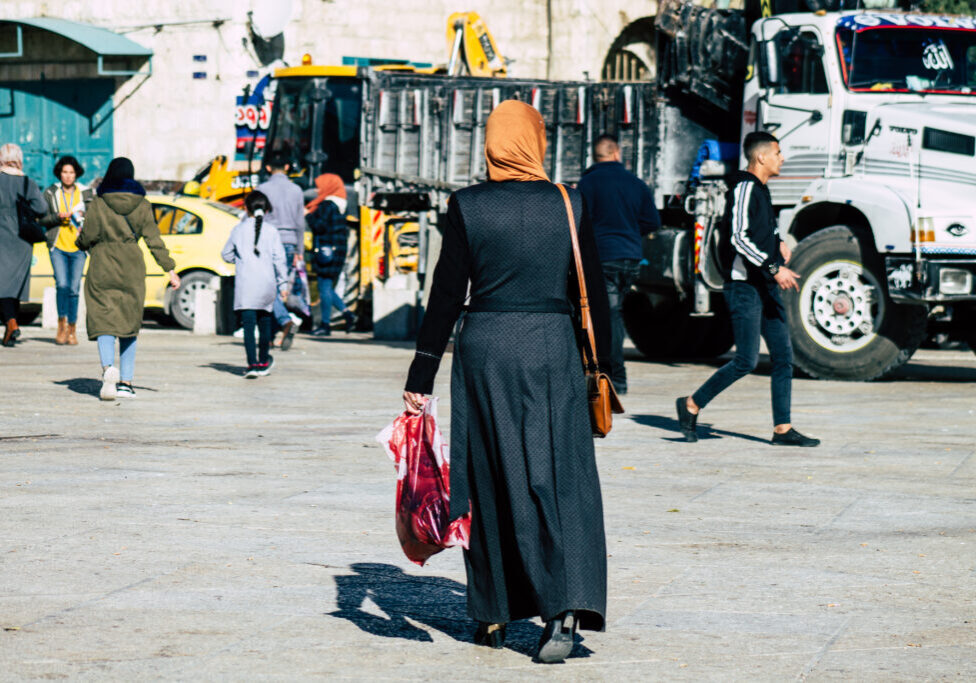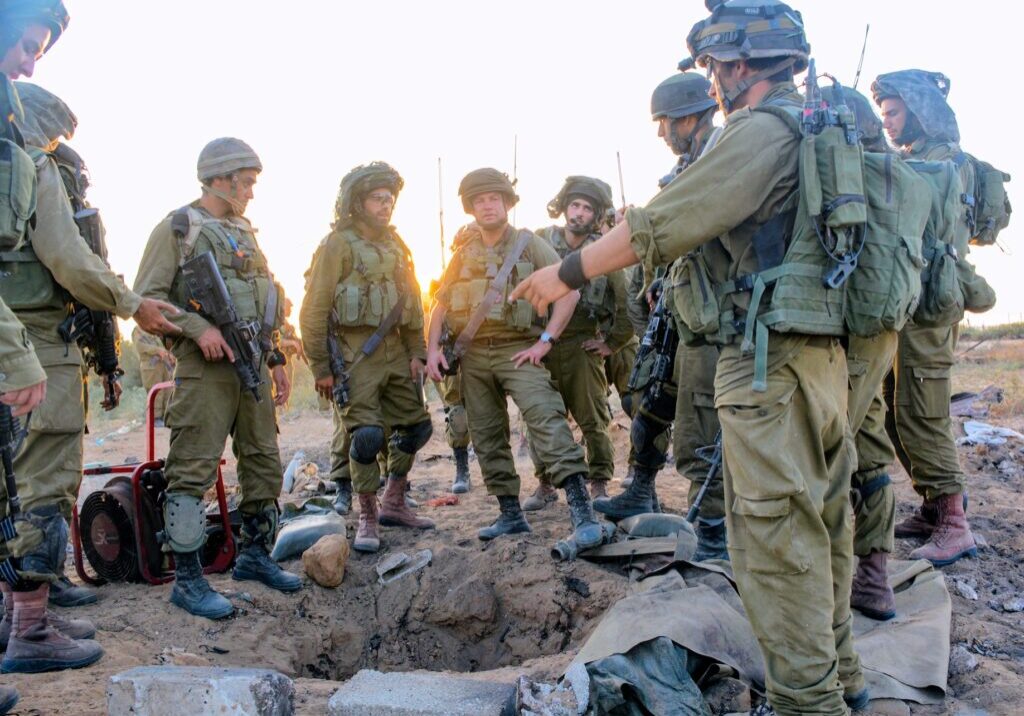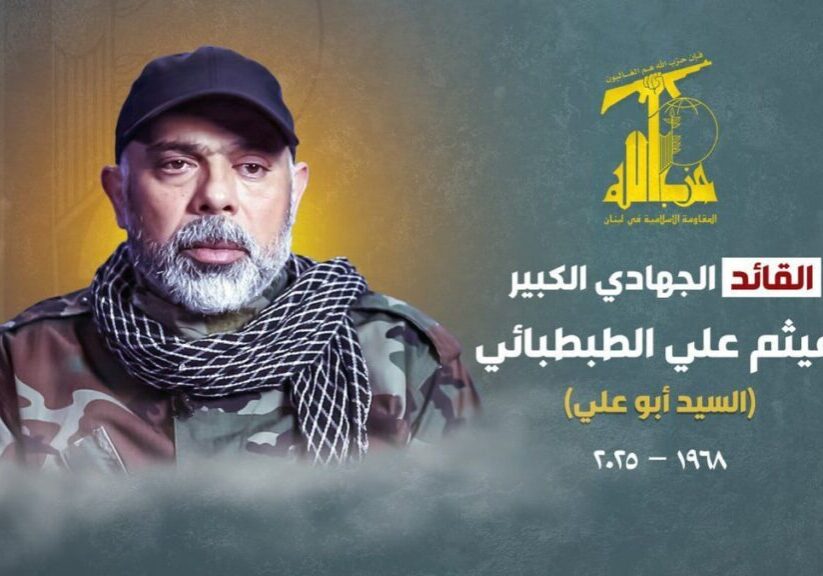Australia/Israel Review, Featured
Essay: The War of Return
Jul 3, 2018 | Einat Wilf
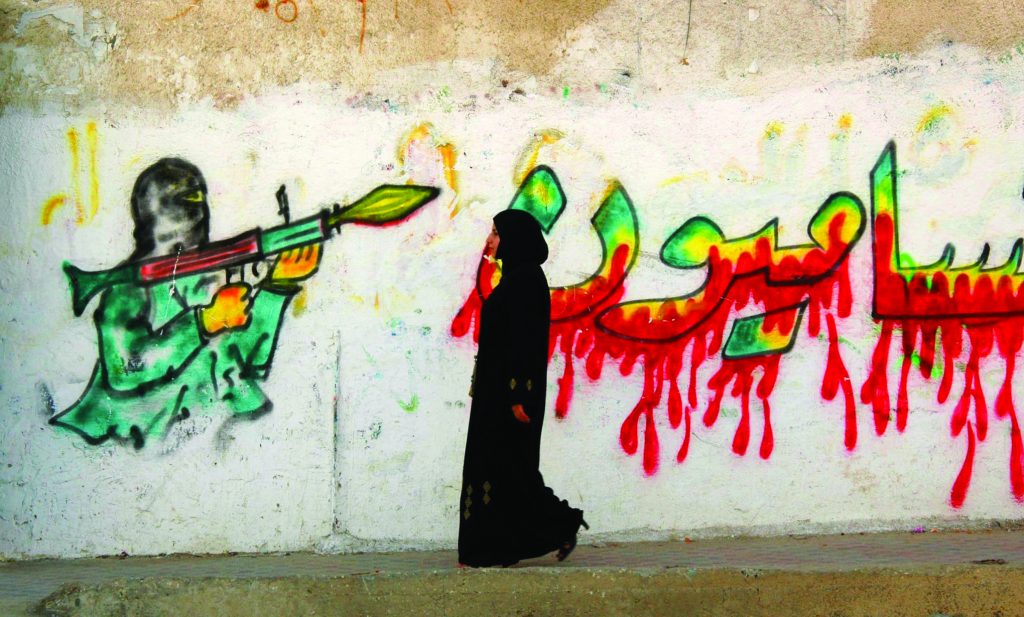
An Israeli leftist’s journey
The following is a translated excerpt from Einat Wilf’s foreword to her new Hebrew language book, The War for Return, co-written with Adi Schwartz. An English language version is expected later this year.
I grew up on the Israeli Left. Perhaps more accurately: I grew up in the Ma’arach (Alignment – the predecessor of the modern Israeli Labor Party). I grew up in the Jerusalem neighbourhood of Beit Hakerem, where nobody voted Likud, and where nobody even imagined that right-wingers might be reasonable people.
I grew up believing that the Arabs beyond the Green Line – the Palestinians – were like the Israelis, and similarly wanted no more or less than did Zionism: the right to run their own lives and be masters of their own fate in part of the land between the Jordan River and the Mediterranean Sea. The First Intifada convinced me that the time had come to complete the process of partition. I believed that once a Labor-led government enabled the Palestinians to establish their own state in the West Bank and Gaza Strip, there would be peace.
For me personally, the 1990s were years of euphoria: I celebrated the election of Yitzhak Rabin in 1992 (although my parents were Peres supporters); the years of the Oslo Accords in 1993-1995 and the peace treaty with Jordan in 1994 only strengthened my faith that peace was within reach, and that Israel’s willingness to recognise the Palestinians’ right to self-determination was bringing us closer to that peace. I hated the settlers with all my heart, and believed that they – and they alone – with their settlements all over the West Bank, were depriving me of the peace I had been promised. From my home in Jerusalem, I could hear the settlers’ cries at the turbulent protests against the Oslo Accords and against Rabin the “traitor”. Rabin’s assassination, at the hands of a man who believed in the settlers’ cause, strengthened my belief that the settlers were the true enemies of peace.
A few years later came the election of Ehud Barak in 1999, determined to reach a permanent accord with the Palestinians, filling me with hope for the end of days. I cheered Barak’s “dawn of a new day” speech in Rabin Square. Not even the failure of the Camp David negotiations in 2000 weakened my resolve, and I keenly followed Barak’s last-minute efforts to resume negotiations at Taba despite the escalating Palestinian violence in the background.
But the fact that the Palestinians had not seized this concrete opportunity to establish their own state over the West Bank and Gaza Strip, and could not bring themselves to say yes, planted a seed of doubt in my mind. After all, a nation that wants a state should say yes. Just so. Plain and simple. The Palestinians were meant to be like the Israelis – like the Zionists – and just say yes.
Recall that the UN Partition Plan of 1947, to which the Zionist leadership had to respond, told the Zionists that they would not receive Zion and to the Jews (“Judeans” in almost all languages) that they would not receive Judea. It even told them that the UN was reneging on its commitment, enshrined in the League of Nations mandate, to grant them the whole land between the river and the sea, instead permitting a Jewish state in only half of the land, most of it the Negev desert.
What did the Zionists say? Yes. Yes, loud and clear. Because at the moment of truth, what the Zionists wanted was a state. Without Zion, without Judea, on half of the land, mostly desert – but at least a state, sovereignty, self-rule, and liberty. If the Palestinians could not say yes to a state when they had the chance – not only in 1947, but in 2000 – what did this say about what they actually wanted?
The massacres committed by suicide bombers in buses, cafes, and streets in the following months – known misleadingly as the Second Intifada – raised this question to the level of a cry: “What the hell do they want?”
These acts of slaughter were being perpetrated in Netanya, Haifa, Beersheba, and Tel Aviv – towns located well inside Israel, within the Green Line. I was raised on the assumption that the Green Line divided the area that was legitimately Israel from what was not. I had been raised on the knowledge that the reward for the Zionist leadership’s merit in accepting the partition plan, and the punishment for the Arabs’ rejection, was that at the end of the war, the armistice lines created an Israel that was both larger than envisaged in the partition plan and legitimate.
Israel within the Green Line was the clearest expression of secular Zionism and of the willingness to prefer sovereignty in part of the land over serfdom in all of it. So the fact that these massacres by suicide bombers were happening inside the State of Israel, in areas that were supposedly not in dispute, made me wonder even more keenly what the Palestinians wanted.
I told myself that if the Palestinians wanted their own state in the West Bank and Gaza Strip, I was with them; but if this carnage inside the Green Line was intended to send the message that more than they wanted a state for themselves in part of the land, the Palestinians were still unwilling to accept that the Jewish people would have their state on part of the land as well – if the message from the Palestinians was that it was us or them – then I choose us. And I have no moral qualms about this choice.
Around that time, as my doubts increased about the assumptions we had about the root causes of the Israeli-Palestinian conflict – that this was a territorial conflict that would be solved by partitioning the land into two states, that the Palestinians only wanted a state of their own in the territories, and that the settlers and settlements alone were preventing peace – I was invited to join a series of meetings between moderate Israelis and moderate Palestinians. Having already entered politics – doing political work with Yossi Beilin, the architect of the Oslo Accords, then diplomatic work with Shimon Peres, and later running in the Labor Party primaries – I had been signposted as a “moderate Israeli” who was “worth investing in”.
Like many such meetings, these were organised by Westerners who believed that encounters between Israelis and Palestinians (certainly between the moderate ones) would advance peace. But very soon it became clear to me that the “moderate” Palestinians understood the conflict differently from me. In the course of a few meetings, it dawned on me that for the Palestinians, moderation meant at most a resigned recognition of reality. Some of my interlocutors were not even resigned to reality. The Palestinian participants told me, “We get it it, you’re here. You’ve already stolen our land, but you’re here.” One woman even said that since I was born here, I would not be expelled (“Thank you very much,” I thought).
But when we sat down for dinner and chatted over a glass of wine, even this minimal recognition of reality dissipated – I was informed that the Jewish people are “not a real people”, only a religion, and that religions have no right to statehood or self-determination. I also learnt that the connection between the Jewish people and the Land of Israel is a fable whose only purpose is to steal Arab land.
As a devout atheist, I was incensed by the claim that Judaism is just a religion – an assertion that is not only false but also excludes me and many Jews from the Jewish people. Besides, I thought it was rather extreme to claim that millennia of history, writings, ritual, culture, and religion were invented only so at the end of the nineteenth century a small group of Jews could steal a land that had nothing to do with them. One does not need to be Jewish or believe in God to recognise that one of the strongest ties in world history and culture between a people and a land is between the People of Israel and the Land of Israel.
The bottom line from the arguments of these moderate Palestinians was that the Jews have no right to self-determination – and that even if they do, that right certainly does not apply to the place that they, in their infinite guile, call the Land of Israel.
At the end of these meetings I returned home with the disturbing thought in my head that if these are the moderates among the Palestinians, then the conflict is much deeper than I thought and that the assumptions on which I was raised, that this is a territorial conflict that will be resolved through territorial partition, were flawed.
I told myself that my own moderation meant I recognised the Palestinians’ equal right to self-determination and sovereignty in their land; but the Palestinians recognised neither the equal right of the Jewish people to self determination in their land, nor even that this was their land.
In other words, the Palestinians recognised our might, but not our right. As far as the Palestinians I met were concerned, the State of Israel existed by right of the Jews’ strength in the land, but not even for a moment because of the strength of the Jews’ right to the land. What this meant was that on the day Israel ceases to have might, the Jewish people would cease to have any claim to rights as well.
These insights propelled me on a journey in search of Palestinian partners willing to outline a vision of peace based on recognition of the co-equal right of the Jewish and Palestinian-Arab peoples to self-determination in their homeland. After intensive efforts, I found one influential Palestinian willing to state clearly that he recognised that the Jewish people were not alien in this land and had an equal right to sovereignty.
This elucidated for me just how difficult it was for Palestinians to publicly oppose the maximalist vision of an Arab Palestine free “from the river to the sea” and just how deeply this vision was implanted in the Palestinian consciousness. I understood that if I were to remain committed to the vision of peace recognising the rights of both nations – Jewish and Palestinian-Arab – then my responsibility to combat the Arab vision of ‘Greater Palestine’ was no less than my responsibility to combat the Jewish vision of ‘Greater Israel’.
If the settlements (especially the ones not adjacent to the Green Line) are the clearest expression of the vision of ‘Greater Israel’, then the clearest expression of the vision of ‘Greater Palestine’ is the Arabs’ insistence on the right of return. The more deeply I researched the subject, the more I understood the absurdity: while the international community repeatedly insists that the Jewish people have no rights east of the Green Line, it nurtures Arab demands west of the Green Line through a subsidiary organisation of the United Nations funded with Western cash – the United Nations Relief and Works Agency, or UNRWA.
When I was elected to the Knesset, I set out to put the matter of UNRWA on the agenda and to expose the absurdity of international support generally, and Western support specifically, for this organisation and consequently for the Palestinian demand for return. I wondered how those who want to promote peace, and therefore take pains to emphasise to the Jews that they cannot acquire the entire territory, could be doing absolutely nothing about the parallel Arab demand over the entire territory.
But soon enough it became clear that it was the State of Israel – and especially its defence establishment – that was preventing any possibility of action against UNRWA. To my astonishment, I learnt that Israel is the foremost defender of the Palestinian demand for return, and that the subsequent political and diplomatic cost had never been publicly debated even once.
This book is a product of the recognition, by me and my colleague Adi Schwartz, that whoever wants peace – if not now, then as soon as possible – must invest in undermining Arab maximalism no less than Jewish maximalism. If, as the Jewish sages say, we are not expected to complete the task but neither are we free to avoid it, then at the very least we must promise future generations that it will be easier, rather than harder, to make peace. That means, first and foremost, exposing to the Israeli public how this Arab demand for return was born, raised, nurtured, and cultivated, as well as Israel’s role in this, and then doing whatever we can to change this policy.
Dr. Einat Wilf served in the 18th Knesset and is now a leading Israeli intellectual and the author of four previous books. Adi Schwartz is an Israeli independent journalist with over 10 years experience in leading Israeli and international media outlets. © Einat Wilf and Adi Schwartz, reprinted by permission, all rights reserved.
Tags: Israel, Palestinians

